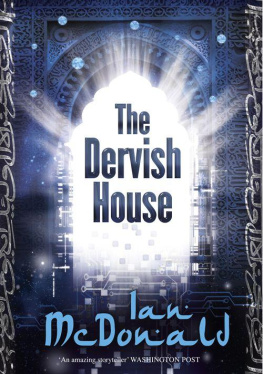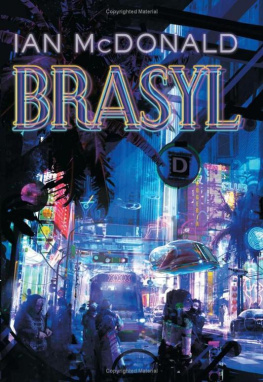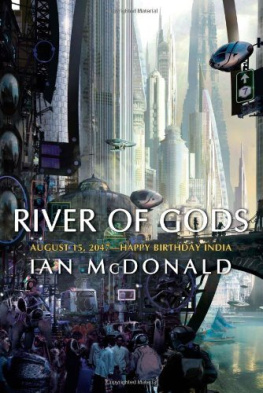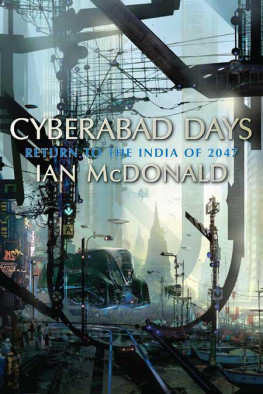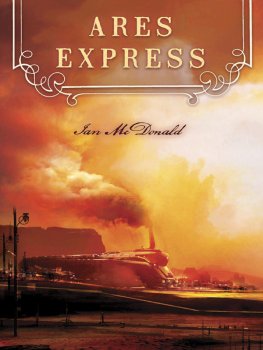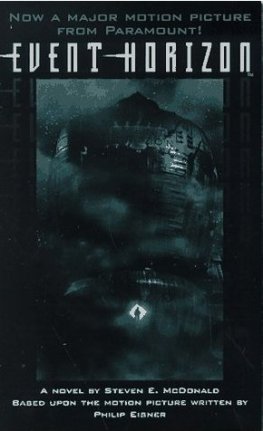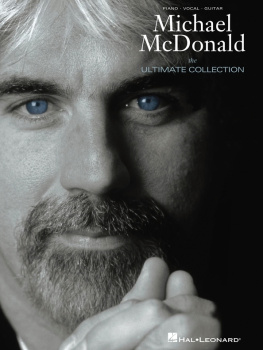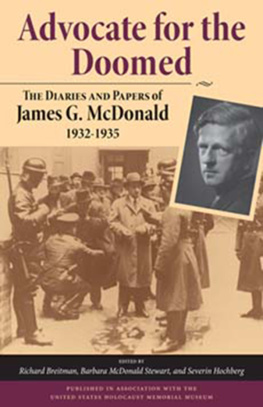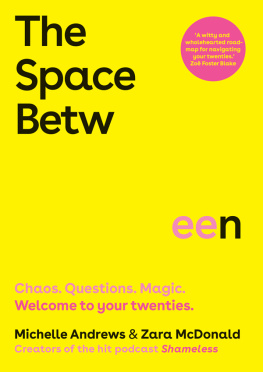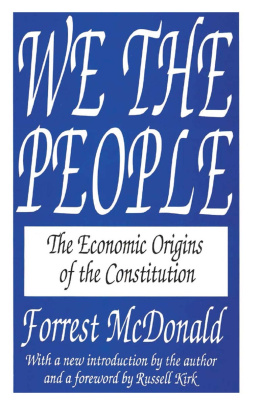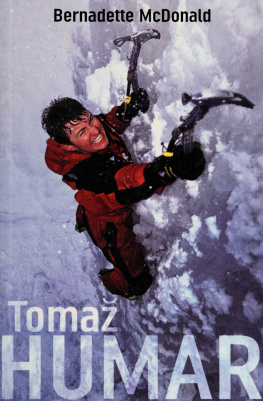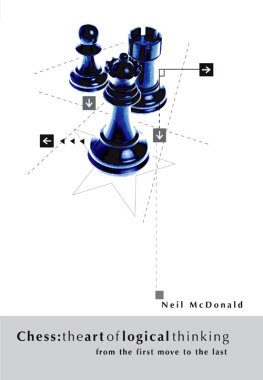Table of Contents
Also by Ian McDonald from Gollancz:
River of Gods
Brasyl
Cyberabad Days
The Dervish House
IAN MCDONALD
Orion
www.orionbooks.co.uk
A Gollancz eBook
Copyright Ian McDonald 2010
All rights reserved.
The right of Ian McDonald to be identified as the author of this work has been asserted by him in accordance with the Copyright, Designs and Patents Act 1988.
First published in Great Britain in 2010 by
Gollancz
The Orion Publishing Group Ltd
Orion House
5 Upper Saint Martins Lane
London, WC2H 9EA
An Hachette UK Company
This eBook first published in 2010 by Gollancz.
A CIP catalogue record for this book
is available from the British Library.
eISBN : 978 0 5750 8904 4
This eBook produced by Jouve, France
No part of this publication may be reproduced, stored in a retrieval system or transmitted in any form or by any means, without the prior permission in writing of the publisher, nor to be otherwise circulated in any form of binding or cover other than that in which it is published without a similar condition, including this condition, being imposed on the subsequent purchaser.
www.orionbooks.co.uk
To Enid
Turkish Spelling and Pronunciation
In 1928 the new Republic adopted a modified Roman alphabet of twenty-nine letters.
Consonants are similar to English, except that:
c is pronounced j as in joy
is ch as in chair
is an almost silent aspirate that lengthens the preceding vowel
j is pronounced as in the French je
is sh as in ship
h and y are pronounced as consonants, as in hit and yellow
Vowels:
a as in father
e as in pen
i as in pin (the capital also carries the dot, which I have not reproduced here for typographical reasons)
has no direct sound in English, the closest being an unrounded vowel sound similar to er
o as in pot
as in the German, or the French eu
u as in room
as in the German, or the English few
Monday
The white bird climbs above the city of Istanbul: a stork, riding the rising air in a spiral of black-tipped wings. A flare of the feathers; it wheels on the exhalations of twenty million people, one among ten thousand that have followed the invisible terrain of thermals from Africa to Europe, gliding one to the next, rising up from Lake Victoria and the Rift Valley, following the silver line of the Nile, across the Sinai and the Lebanon to the great quadrilateral of Asia Minor. There the migration splits. Some head north to the shores of the Black Sea, some east to Lake Van and the foothills of Ararat but the greatest part flies west, across Anatolia to the glitter of the Bosphorus and beyond, to the breeding grounds of the Balkans and Central Europe. In the autumn the stork will return to the wintering grounds in Africa, a round trip of twenty thousand kilometres. There has been a city on this strait for twenty-seven centuries but the storks have been crossing twice a year for time only held by the memory of God.
High above skdar storks peel off from the top of the thermal, wing-tips spread wide, feeling the air. In twos and threes they glide down towards the quays and mosques of Sultanahmet and Beyolu. There is a mathematics to the wheeling flock, a complex beauty spun out of simple impulses and algorithms. As the stork spills out from the top of the gyre, its sense for heat tells it there is something different this migration, an added strength to the uplift of warm air. Beneath its wings the city stifles under an unseasonable heatwave.
It is after the hour of prayer but not yet the hour of money. Istanbul, Queen of Cities, wakes with a shout. There is a brassy top note to the early traffic, the shrill of gas engines. Midnotes from taxis and dolmues, the trams on their lines and tunnels, the trains in their deeper diggings through the fault zones beneath the Bosphorus. From the strait comes the bass thrum of heavy shipping: bulk carriers piled high with containers edge past Russian liquid gas carriers like floating mosques, pressure domes fully charged from the terminals at Odessa and Supsa. The throb of marine engines is the heartbeat of Istanbul. Between them scurry the opportunistic ferries. Sirens and horns, call and response; motors reversing and burbling as they warp in to Eminns quays. Gulls cries; always gulls. Dirty, conniving gulls. No one builds platforms on their chimneys for gulls to nest. Gulls are never blessings. The clatter of roller shutters, the bang of van doors. Morning radio, pop and talk. Much talk, of football. Champions League quarter-final. Galatasaray/London Arsenal. The pundits are in full flow from a hundred thousand balconies and rooftop terraces. Pop, football and heat. This is the tenth day of the heatwave. Thirty-three degrees in April, at seven in the morning. Unthinkable. The climate pundits speculate on whether it could be another Big Heat of Twenty-Two when eight thousand people died in Istanbul alone. That was insane heat. Now some witty phone-in caller is fusing the two punditries together and speculating that if it flattens those pale English footballers, can that be such a bad thing?
Over all, through all, the chorus of air-conditioners. A box in a window, a vent on a wall, an array of fans on a rooftop, one by one they spin up, stirring the heat into ever-greater gyres of warm air. The city exhales a subtle breath of spirals within spirals, updrafts and microthermals.
The storks pin-feathers feel out the rising airscape. The citys waste heat may save it those few wing beats it needs to carry it to the next thermal or away from the stooping eagle. Its life is an unconscious algebra, balancing equations between energy opportunity and energy expenditure. Black feather-tips flutter as it slides down across the rooftops.
The explosion goes almost unnoticed in the greater roar of the waking city. A flat crack. Then silence. The first voices are the pigeons and gulls, bursting upwards in clattering wings and shrieks. Then come the voices of the machines: car alarms, security alarms, personal alarms, the hip-hop of call tones. Last come the human shrieks and cries.
The tram has come a halt in the centre of Necatibey Cadessi, a few metres away from the halt. The bomb detonated at the rear; the blue roof is bellied up, the windows and doors blown out. A little smoke leaks from the back end of the second car. The passengers have made their own escapes on to the street and now mill around uncertain what they are to do. Some sit on the ground, knees pulled up, deep in shock. Pedestrians have to come to help. Some offer coats or jackets; some are making cell calls, hands trying to describe the scene; more stand around feeling the need to offer help but uncertain what to do. Most stand back, watching and feeling guilty for watching. A few without guilt shoot video on their cepteps. The news channels pay money for citizen journalism.
The tram driver goes from group to group asking is everyone there, is anyone missing, are they all right? And they are all right. She doesnt know what to do either. No one knows. Now come the sirens. Here are people who will know what to do. Lights flash beyond the press of bodies, the crowd parts. Its hard to tell victims from helpers; the blood is smeared everywhere. Necatibey Cadessi is a street of global banks and insurance combines but the ripples from the blast have spread out along the lines of the light rail system. Station by station, street by street, tram by stalled tram, Beyolu seizes up. Everyone knows about the bombing now.

